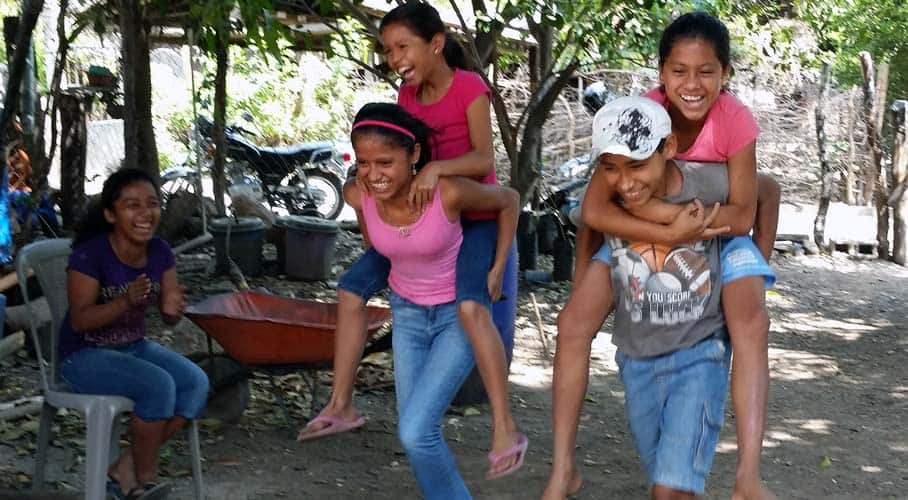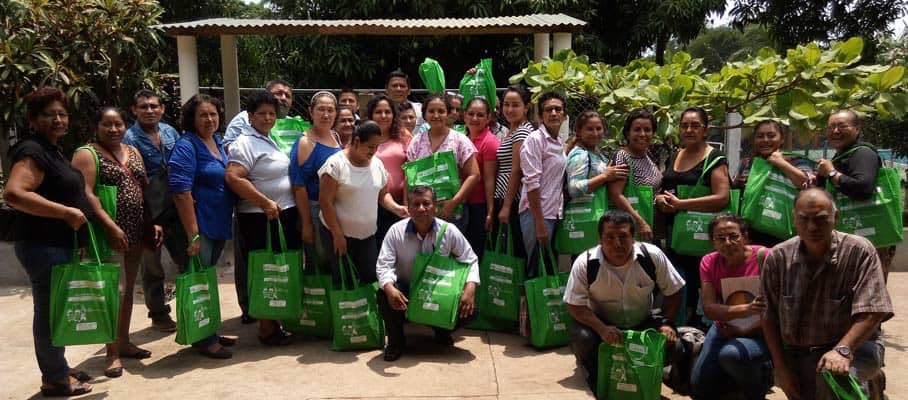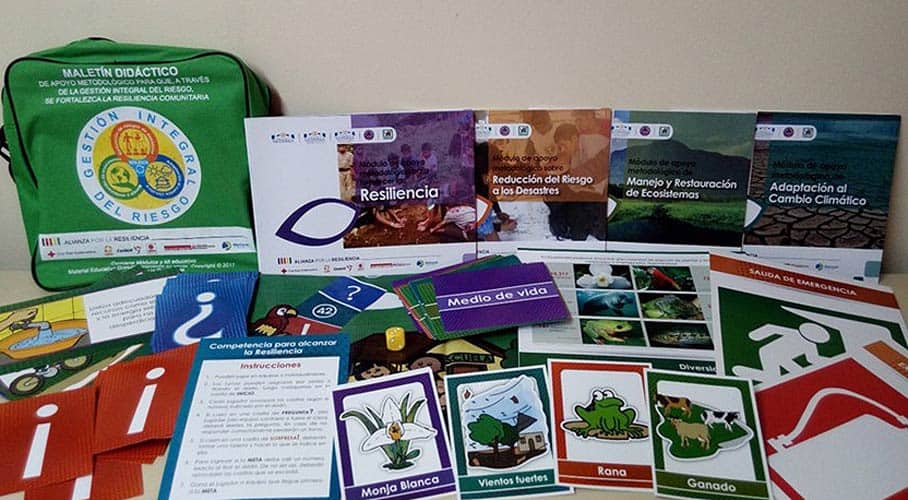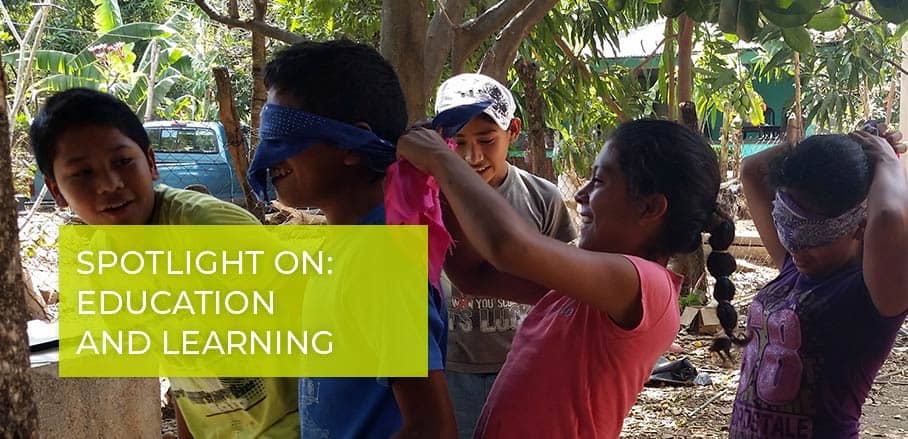Resilience Education: Methodological Support Modules for Guatemalan Schools
Resilience can be learned, and what better place to do so than in schools? Jorge Ruiz and Mayté González from Wetlands International LAC present a tool kit for resilience education they developed together with teachers in Guatemala..
Mainstreaming disaster risk education messages at all educational levels is a tool towards efficient disaster risk reduction (DRR). To this end, one of Wetlands International’s prioritised action lines in Central America is to promote education for resilience. We implement this vision through a comprehensive approach which encompasses natural resources management, ecosystems restoration, adaptation to climate change, and disaster risk reduction. In this context, knowledge management for resilience is key to advance biodiversity goals, while improving adaptive capacity and strengthening local livelihoods.

“In whose shoes am I” – Dynamic of the DRR module © PfR – Cáritas Diócesis de Zacapa
Resilience Education – The Guatemalan Context
In the context of the Second Phase of the Partners for Resilience (PfR) Programme in Guatemala (2016-2020), Wetlands International led a national capacity building programme targeting elementary school students, aiming to provide basic tools and knowledge on DRR, including ability to anticipate, respond, adapt to, and jointly address disaster risks in their communities. Along with government agencies, PfR developed four Methodological Support Modules and one Educational Resources Kit, addressing resilience through an integrated approach, which combines DRR, Climate Change Adaptation (ACC), and Ecosystem Management and Restoration (EMR).
These modules and the kit are currently part of the National Base Curriculum (CNB for its acronym in Spanish) of the Ministry of Education, and as such will be distributed across the country. To achieve this, the modules and kit were first validated, endorsed, and institutionalised by two ministries: the Ministry of Education (MINEDUC) and the Ministry of Environment and National Resources (MARN), and two state secretariats: the Executive Secretariat of the National Coordinator for Disaster Reduction (SE-CONRED) and the National Council for Protected Areas (CONAP).
The creation of a joint programme with these entities was is in itself a strong accomplishment for DRR dissemination at the national level.
“Within SE-CONRED it has been a valuable opportunity to participate in the revision of the module on risks in cooperation with the other institutions, as it allowed us to homologate the new approach to DRR: moving away from a disaster-centred approach and focused on the preparation emergency, toward risk reduction and the factors that determine it. This way we seek to stimulate the reduction of vulnerabilities and the strengthening of community resilience”, expressed Rolando Déleon, Responsible for Public Policies at SE-CONRED.
Including Teachers in the Development of Resilience Education is Key
For Partners for Resilience (PfR) in Guatemala, resilience education for pupils and young people can help break the cycle of disasters and social/economic/environmental impoverishment, as today’s youth are the potential leaders of tomorrow. The PfR Programme strategy was to reinforce teachers’ potential as key factor within the formal educational system. Having the resilience education modules and kit validated by the teachers and district supervisors of MINEDUC ensured that the package was not received as an extra load for the teachers, but as a complementary tool for their educational work plans.
The modules contain a guide that allows teachers can easily mainstream it into their regular planning and thematic contents. The material is organised into a conceptual theoretical part, and a practical part, complemented with the toolkit for play-based activities. For Gloria Roxana Véliz, 3rd and 5th grade teacher at Rural Mixed School of Sunzapote in Zacapa, the implementation of the modules “is a necessary tool for teachers because they are related to the National Base Curriculum CNB; the nice thing is that they propose activities for each content”.
The Methodological Support Modules for Community Resilience have proven to be a valuable tool for formal education. Over the past five years, through the PfR programme, Wetlands International supported the training of more than 1,200 teachers, principals, educational supervisors, and institutional technicians from government and non-governmental organisations. Teachers from more than 240 educational establishments at the elementary, basic and diversified levels have been trained and provided with educational material, as well as more than 90 literacy instructors from the National Literacy Commission (CONALFA).

Teachers trained on the southeastern coast of Guatemala © Wetlands International Guatemala
The Methodological Support Modules and the kit of educational materials are available in Spanish and in English. Based in the PfR project experience and success, Wetlands International looks forward to replicate this experience in other countries jointly with institutional and government partners.

Complete Modules Educational Kit © Wetlands International Guatemala
Wetlands International is an international non-profit NGO working globally to conserve and restore wetland ecosystems. Our knowledge base and advocacy enable action to safeguard and restore wetlands, to use them sustainably. Our long-term vision is that wetlands and water resources are conserved and managed considering the full range of their values and services, for the benefit of biodiversity and human well-being.
